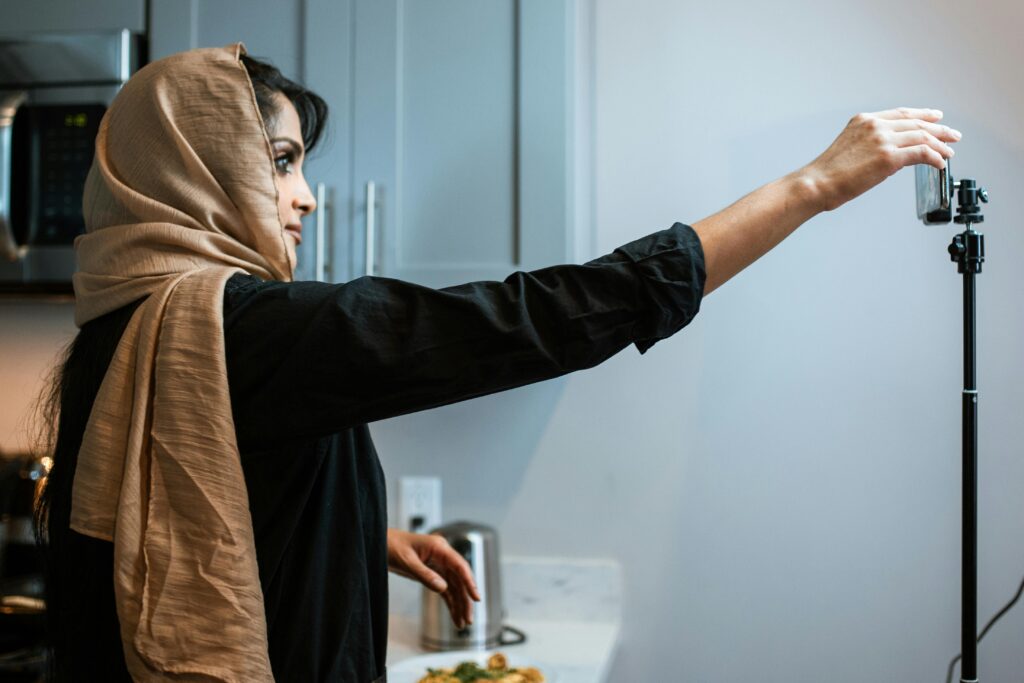
Introduction to SEO for Food Bloggers
For food bloggers passionate about sharing their culinary adventures and creations, understanding SEO is the secret ingredient to expanding your audience and boosting your blog’s visibility. SEO, or Search Engine Optimization, is a collection of strategies and practices aimed at increasing your website’s ranking on search engines like Google. By mastering SEO, you ensure that your delicious recipes and captivating food stories are easily discoverable by food enthusiasts around the globe.
Crafting High-Quality Content
The foundation of a successful food blog is irresistible content that engages and delights your audience. Whether it’s exploring the nuances of world cuisines or providing your readers with the ultimate guide to baking the perfect chocolate cake, quality content is what will keep your audience coming back for more.
Tips for Creating Engaging Food Content
Creating content that stands out begins with authenticity and passion. Narrate the stories behind your dishes, share personal anecdotes, and be genuine in your recommendations. Remember, engaging content is not just about what you say, but how you say it. Maintain a conversational tone, use descriptive language, and always aim to add value to your reader’s day.
Utilizing Keywords Effectively
In the world of SEO, keywords act as beacons that lead potential readers to your blog. But finding and integrating these keywords requires a blend of art and science.
Finding the Right Keywords for Your Food Blog
To uncover keywords that match your content with your audience’s search queries, leverage tools like Moz’s Keyword Explorer or SEMrush. These platforms offer insights into keyword popularity, competition levels, and variations, enabling you to choose terms that balance demand and achievability.
Integrating Keywords Naturally
Once you’ve selected your keywords, sprinkle them throughout your content in a way that feels natural. They should fit seamlessly into your titles, headings, meta descriptions, and the body of your articles. Remember, the goal is to enhance your content’s relevance without compromising its readability or value.

Optimizing Your Food Blog’s Structure
The architecture of your blog plays a critical role in SEO. An optimized structure enhances user experience and makes it easier for search engines to index your content.
Mobile Optimization: A Necessity
In today’s mobile-first world, ensuring your blog is responsive across all devices is non-negotiable. Mobile-friendliness not only affects your SEO rankings but also influences how long visitors stay on your site. Google’s Mobile-Friendly Test can help you evaluate your blog’s performance on mobile devices.
Enhancing User Experience
Improving your site’s navigation and load time can significantly impact your SEO success. Tools like Google’s PageSpeed Insights provide actionable recommendations to speed up your website, while a clear, well-organized layout helps visitors find the content they’re looking for with ease.
Site Speed: Keeping Your Audience Engaged
A fast-loading site is essential for keeping your audience’s attention. Utilize caching, optimize images, and minimize CSS and JavaScript to enhance your site’s speed.
Easy Navigation: A Key to Lower Bounce Rates
Facilitate a smooth browsing experience by organizing your content into categories, using descriptive menu labels, and implementing a search function. A user-friendly site encourages visitors to explore more content, reducing bounce rates and improving SEO rankings.
Leveraging Social Media and Backlinks
Expanding your blog’s reach through social media and earning backlinks from reputable sites can significantly boost your SEO efforts.
Building a Social Media Presence
Social media platforms are invaluable for promoting your content and engaging with your audience. Share your latest posts, interact with followers, and use relevant hashtags to increase your visibility.
The Power of Quality Backlinks
Backlinks, or links from other websites to your blog, signal to search engines that your content is valuable and authoritative. Collaborate with fellow food bloggers, contribute guest posts, and engage with food communities online to build a robust backlink profile.

Utilizing Multimedia Content Effectively
Engaging multimedia content not only enriches your blog posts but also contributes to your SEO efforts.
Importance of High-Quality Food Photography
Exceptional food photography can make your content more engaging and shareable. Consider investing in a good camera or hiring a professional photographer to capture your creations in the best light possible.
Video Content: Engaging Your Audience Further
Incorporating video tutorials, reviews, or behind-the-scenes glimpses into your blog posts can significantly increase engagement and time spent on your site. Platforms like YouTube also offer an additional channel for attracting traffic.
Local SEO for Food Bloggers
For bloggers focusing on local cuisine or dining establishments, optimizing for local SEO can connect you with an audience eager to explore food options in their area.
Connecting with Your Local Food Community
Participate in local food events, review local eateries, and collaborate with local chefs to enhance your visibility in local search results. Use location-specific keywords and list your blog on local business directories to improve your local SEO.
Google My Business for Food Bloggers
A Google My Business profile can further boost your local SEO, making it easier for people in your area to find your blog when searching for local food information.
Mastering SEO: Tips for Food Bloggers to Rank Higher
Embrace SEO as a continuous learning process. Stay updated on the latest trends and algorithm updates, regularly audit your blog’s SEO health, and always be willing to adapt your strategies for better performance. With patience and persistence, SEO can unlock new levels of success for your food blog, bringing your culinary masterpieces to the forefront of the digital stage.

The natural keywords tip was so helpful for me. I always find it difficult to make my keywords sound natural.
You MUST optimize your blog for mobile. These days, that’s what most people are using. I recently revamped my entire site for mobile.
That is correct! Most people miss this part.
These are all excellent strategies no matter what kind of blog you have. Anyone with a web presence should read this!
I agree with you!
What great advice! I use my mobile device to look up most recipes instead of the computer! I also do look at the image and judge the recipe off of good high quality photos.
Wow! This is awesome advise. I have a lifestyle blog but do a lot of food posts. I will be sure to start incorporating your suggestions. Do you have any suggestions for apps to help with pictures?
Hi Kelly, on this website I provide the photography for food bloggers. I use Lightroom to edit my photos for each recipe.
These are such good tips- even for non food based bloggers. I write about mostly lifestyle and travel and these tips are even applicable to me. I need to be better about implementing these things!
Optimizing for mobile and for the local area are essential. These tips are easy to implement, for the most part, and will produce results.
Thanks for suggesting using SEO tools like Moz’s Keyword Explorer or SEMrush to find the right keywords. I am currently using Neil Pate’sl Ubersuggest. I will also take note that keywords should blend naturally throughout titles, meta descriptions, and body content.
I couldn’t agree more with the idea of incorporating video tutorials, reviews, or behind-the-scenes glimpses into blog posts. It makes the content more engaging and keeps the audience hooked for longer. The tips shared for food bloggers to optimize their local SEO are quite helpful, especially for those focusing on local cuisine or dining establishments. Participating in local food events, reviewing local eateries, and collaborating with local chefs can indeed enhance visibility in local search results. And, the idea of using Google My Business profile to boost local SEO is a smart move. Overall, mastering SEO is crucial for food bloggers to rank higher and gain more success.
These are great essential SEO strategies for food bloggers. I love that you emphasize having good photography for the site. As a photographer I can tell you that professional images go a long way towards ranking on Google. Don’t forget about ALT text too. Another wonderful way to get those key words in on a webpage or blogpost.
I’m bookmarking this. My SEO has been severely lacking lately, but I wasn’t able to dial it in. This is great!
All great points in this article for food bloggers – or anyone considering starting a food blog. There are several points you make, especially on backlinks, I must spend more time on.
I’ve been trying to learn more about SEO. Link building is important but of course getting the right backlinks. I am also trying to use more focused keywords and am searching which would work best on each on my posts. Social media is also very important and helps boost traffic considerably. I’m trying to increase posts and improve interaction with readers where I can. This is a great post and one I’ll be coming back to to make sure I’m doing all that I can.
This kind of strategy is really good and can benefit all of us to be more efficient and can share information easily.
Aside from choosing the right keywords, social media presence is a must if you want more engagement and traffic for your blog. Nevertheless, thanks for sharing your thoughts about SEO.
That is correct. I have also covered that in my blog post 🙂
Totally get the importance of nailing those keywords for a food blog. Moz’s Keyword Explorer and SEMrush are legit lifesavers for finding those tasty keywords. 🍔🔍
And yep, making them fit naturally into the content is key! Gotta keep it readable and enjoyable, just like a good meal. 🍝
These are such great tips! As a travel blogger, I also use SEO and have started building my backlinks with other bloggers.